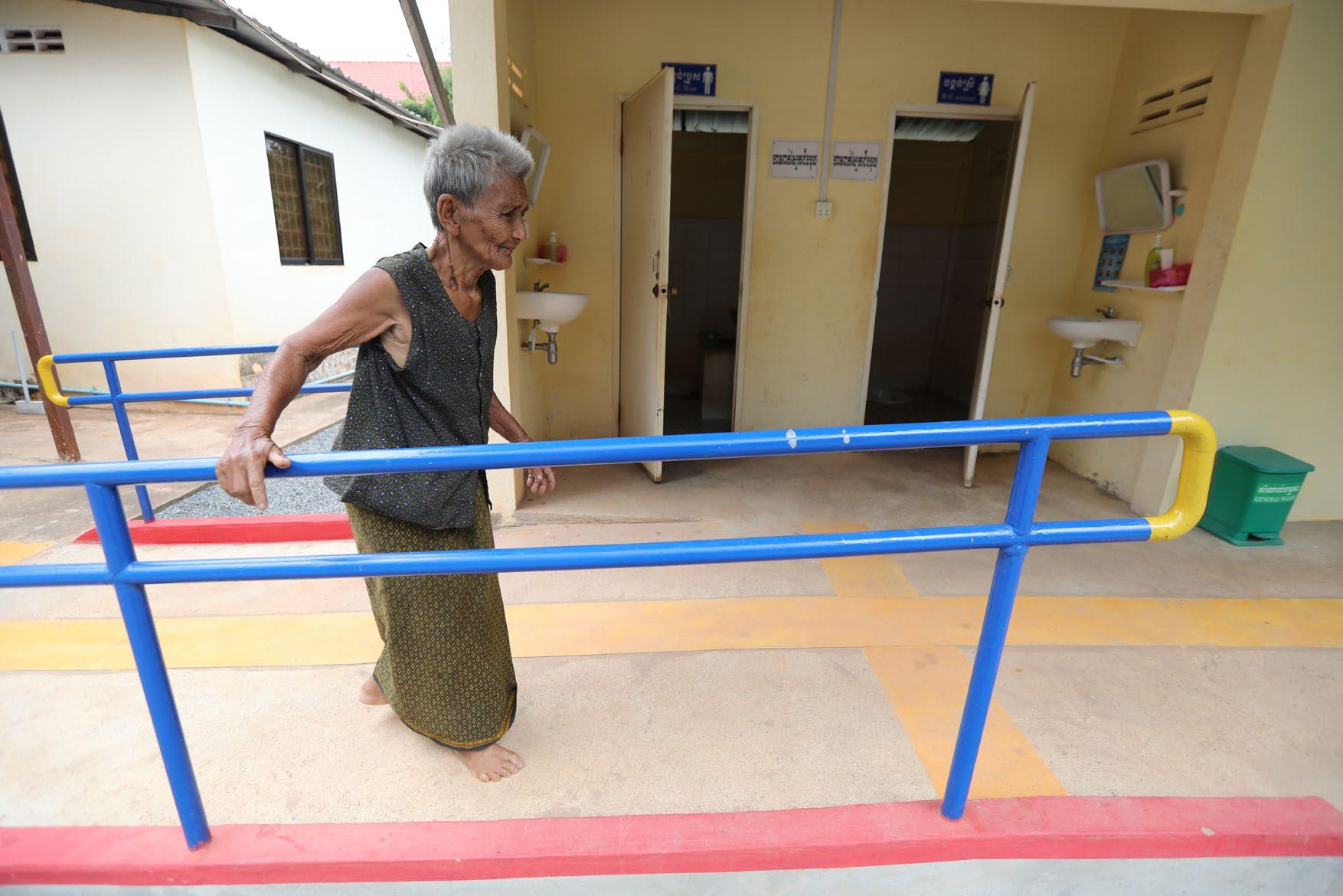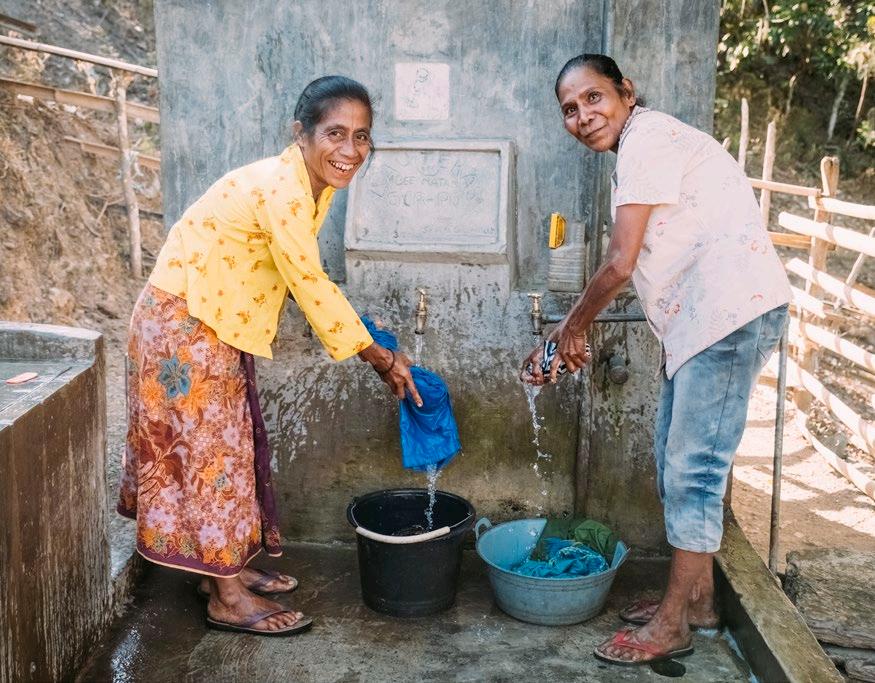
3 minute read
Gender Equality and Disability Rights
Gender inequality is made worse by weak water, sanitation and hygiene (WASH) systems and services. WaterAid
strives to empower women and girls through our efforts to improve WASH services across countries and regions. A gender equality and human rights approach underpins WaterAid’s new Global Strategy 2022 – 2032: Ending the WASH Crises Together – for everyone, everywhere. Gender outcomes are core to each of the four global aims, and WaterAid has made a fresh and deeper commitment to strive for women and girls to be a central part of decision-making and leadership within WASH, at all levels, so their voices are heard and their needs are met.
Advertisement
Yan (84) walking down a ramp from the disabled user-friendly toilet at the Thlork Vien health centre, Chhouk Village, Cambodia.
A key tactic we have successfully applied over the past year is to strengthen women and gender rights organisations to be WASH leaders. We have also done this together with people who have disabilities and their rights organisations. We support women and people with disabilities to be decision-makers who are driving work on WASH governance systems in the countries where we work. Below is a snapshot of some key programming achievements in gender and disability rights in Asia and the Pacific.
In Cambodia, the WaterAid team led the ‘HerRoles’ campaign over the past year, supported by Who Gives a Crap. The campaign promoted women’s WASH leadership as the sector is predominantly male-dominated. The campaign rolled out a series of podcasts, live public dialogue events and story-telling through creative platforms to raise awareness. 11 women working in senior WASH roles undertook a leadership course to improve skills, knowledge and self-confidence and to foster role modelling to others. The campaign also mobilised men working in WASH in government and nongovernment sectors to publicly commit to take actions to champion gender equality through a series of high-profile public dialogue sessions.

“After participating in HerRoles campaign, it got me realize that leadership has not position; everyone can be a leader of their
own-self” a representative from the Ministry of Rural Development, Cambodia
Over the past year in Timor-Leste, we partnered with the Institute for Sustainable Futures (University of Sydney) to undertake research to better understand the drivers, barriers and opportunities of partnering with gender rights organisations. The research found that working together in partnership led to an increase in participation of women and increased the scope of the local rights organisations work, contributing to their strategic plans. As one research respondent said:
Partnership activities led to a positive change in the community’s perspective on engineering, which was now considered to be a job that both women and men could do.
Isabel, 55 (left) and Olinda, 59 (right) washing clothes in a bucket using water from a community tap stand in Timor-Leste
This year our teams in Cambodia and TimorLeste also published academic journal articles which measured our gender empowerment outcomes through WASH. The review found that household gender equality changes in Timor-Leste were empowering because they shifted women’s and men’s roles, relationships and attitudes. It found that women’s leadership approaches in Cambodia achieved inclusive outcomes because they enhanced women’s critical consciousness. There was evidence of either individual/self-empowerment changes or changes to the enabling environment. The authors conclude by achieving empowerment outcomes in WASH, there can be a positive shift in gender norms, redistribution of power and benefits to women.
(Interview with woman training participant, Cambodia).









